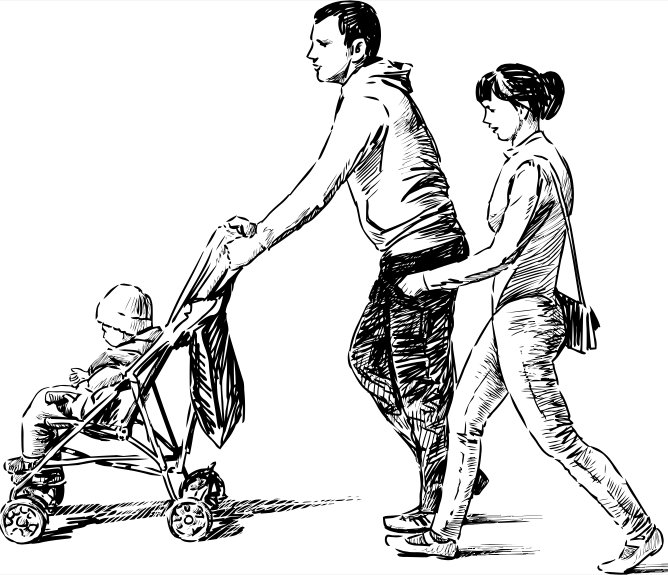How long does probate take without a Will?
Our Probate Solicitors find that it usually takes 9-12 months to complete the probate and estate administration process. There are potential delays along the way though, which can slow this process down (such as issues with selling a property, a missing beneficiary or a claim being made against the estate). For these reasons, more complex estates will usually take longer.
How long probate takes without a Will
Probate is a legal process you might need go through when someone dies. Probate gives someone legal authority to ‘administer’ the deceased person’s estate. The estate includes everything they owned when they died, such as their home, money and personal possessions.
Administrating an estate can involve a lot of work. There are lots of legal, tax and administrative jobs to carry out. Some of the key tasks include: – Getting a Grant of Probate from the Probate Registry – Calculating the value of the estate – Calculating and paying inheritance tax, income tax and capital gains tax – Selling or transferring the estate assets – Contacting the beneficiaries – Contacting creditors and settling outstanding debts on the estate – Preparing the estate accounts – Distributing the estate to the beneficiaries
The actual process of probate and estate administration is much the same, regardless of whether or not the deceased person left a Will. This means that there’s no real difference to the length of time it takes if someone dies having left a Will or dies ‘intestate’ (meaning they’ve died without a Will).
The only difference is that the deceased’s estate will be distributed under the terms of the law if there isn’t a Will, which might not align with their or their loved one’s wishes.
Dying intestate does have some bearing on who is allowed to apply for probate and administer the estate. This is because when someone writes a Will they choose ‘Executors’, and these people are responsible for completing the probate Process. But if someone doesn’t leave a Will, the law also determines who has this authority.
Probate without a will – inheritance laws
When someone dies without a Will in England or Wales, inheritance laws called the rules of intestacy apply. These rules determine who should inherit the deceased person’s estate and who should administer the estate.
The rules of intestacy place the deceased’s relatives in order of priority, starting with their spouse. So if their husband, wife or civil partner is still alive, they will be the main beneficiary.
After a spouse or civil partner, the order of priority is:
- Children
- Grandchildren
- Great grandchildren
- Parents
- Siblings
- Nieces and nephews
- Other close relatives
When someone dies intestate, only a beneficiary of the estate is allowed to apply for the authority to administer the estate. This person will be known as the administrator of the estate (as opposed to an executor when there is a Will). The role of the administrator is very similar to the role of the executor.
The administrator must apply to the Probate Registry for a legal document called a grant of letters of administration. This document grants them legal authority to deal with the deceased person’s assets and administer their estate. Without this document, the administrator will not be able to sell their property and they may not even be able to close their bank accounts.
Again this document is slightly different if there is a Will, as the executor must apply for a document called a grant of probate instead. Both documents work in a very similar way and the administration process is largely the same.
Because there’s so much involved in the administration of an estate, it’s difficult to say precisely how long probate will take with or without a will. Every estate is different and there are lots of complications that can cause delays.
Our Probate Solicitors estimate that an average estate that includes a property will take between 9-12 months to finalise. However this can be longer if the estate is complex or if issues occur along the way.
Case Studies
Over the years, CKE Law have helped hundreds of individuals and businesses up and down the country. Some of our success stories are below...
-
 Read MorePersonal InjurySlip, Trip or Fall Accidents in Public PlacesIf a member of the public gets injured in a slip, trip or fall accident in a public place, and reasonable steps hadn't been taken to make the area safe, the injured person may be entitled to make a public liability claim.
Read MorePersonal InjurySlip, Trip or Fall Accidents in Public PlacesIf a member of the public gets injured in a slip, trip or fall accident in a public place, and reasonable steps hadn't been taken to make the area safe, the injured person may be entitled to make a public liability claim. -
 Read MorePersonal InjuryWill Personal Injury Compensation Affect My Benefits?Receiving state benefits should not stop an injured person starting a claim for personal injury or medical negligence compensation.
Read MorePersonal InjuryWill Personal Injury Compensation Affect My Benefits?Receiving state benefits should not stop an injured person starting a claim for personal injury or medical negligence compensation. -
 Read MoreFamily LawClean Break Orders explainedA clean break order is used following a divorce and essentially means that each person's financial affairs are completely severed from the other's. Without a clean break order or a consent order from the court, your ex-spouse could make a financial claim against you at any time in the future.
Read MoreFamily LawClean Break Orders explainedA clean break order is used following a divorce and essentially means that each person's financial affairs are completely severed from the other's. Without a clean break order or a consent order from the court, your ex-spouse could make a financial claim against you at any time in the future.